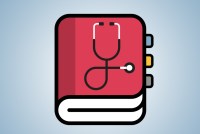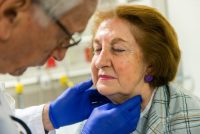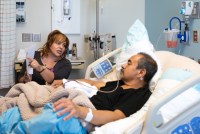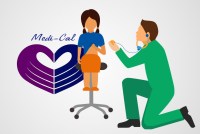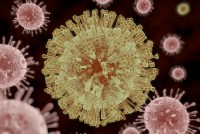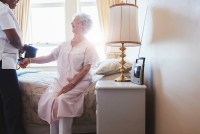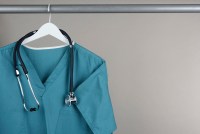Latest Morning Briefing Stories
Cuando Es Hora De Dividir A La Familia
Covered California está haciendo más fácil para los consumidores comprar diferentes planes de salud para distintos miembros de la familia.
Under a new law, you could get money back if you were charged out-of-network prices after going to a medical provider who is listed in your health plan’s network.
Geriatric ERs Reduce Stress, Medical Risks For Elderly Patients
Overcrowding and chaos in traditional emergency rooms can harm seniors’ health. That’s prompting some hospitals to open ERs designed specifically for the elderly.
‘More At Peace’: Interpreters Key To Easing Patients Final Days
But more training is needed for such translators to do their jobs well, without miscommunications and misunderstandings.
When It’s Time To Split Up The Family
Covered California is making it easier for consumers to buy different health plans for different family members.
Puberty Blockers May Improve The Mental Health Of Transgender Adolescents
Putting sexual development on hold gives children a breather as they consider transitioning to the opposite gender. But when to begin?
Mejor Acceso Al Medi-Cal Para Los Niños Indocumentados
Casi 134.000 niños inmigrantes en California sin papeles ahora reciben beneficios de salud completos del gobierno debido a una ley del estado que expande su cobertura.
Researchers Identify A Key Weapon of Zika Virus
University of Southern California scientists determined the virus uses certain types of protein to interrupt the brain development of fetuses. The finding is a step toward the possible development of an intervention that could prevent the infection from leading to microcephaly.
Teaching In-Home Caregivers Seems To Pay Off
Intensive training for such aides helps reduce repeated ER visits and hospitalizations of elderly disabled people, a pilot project suggests.
Teaching Future Doctors About Addiction
Most medical schools offer very little education on treating opioid addiction. Stanford University’s medical school is trying to ramp it up.



